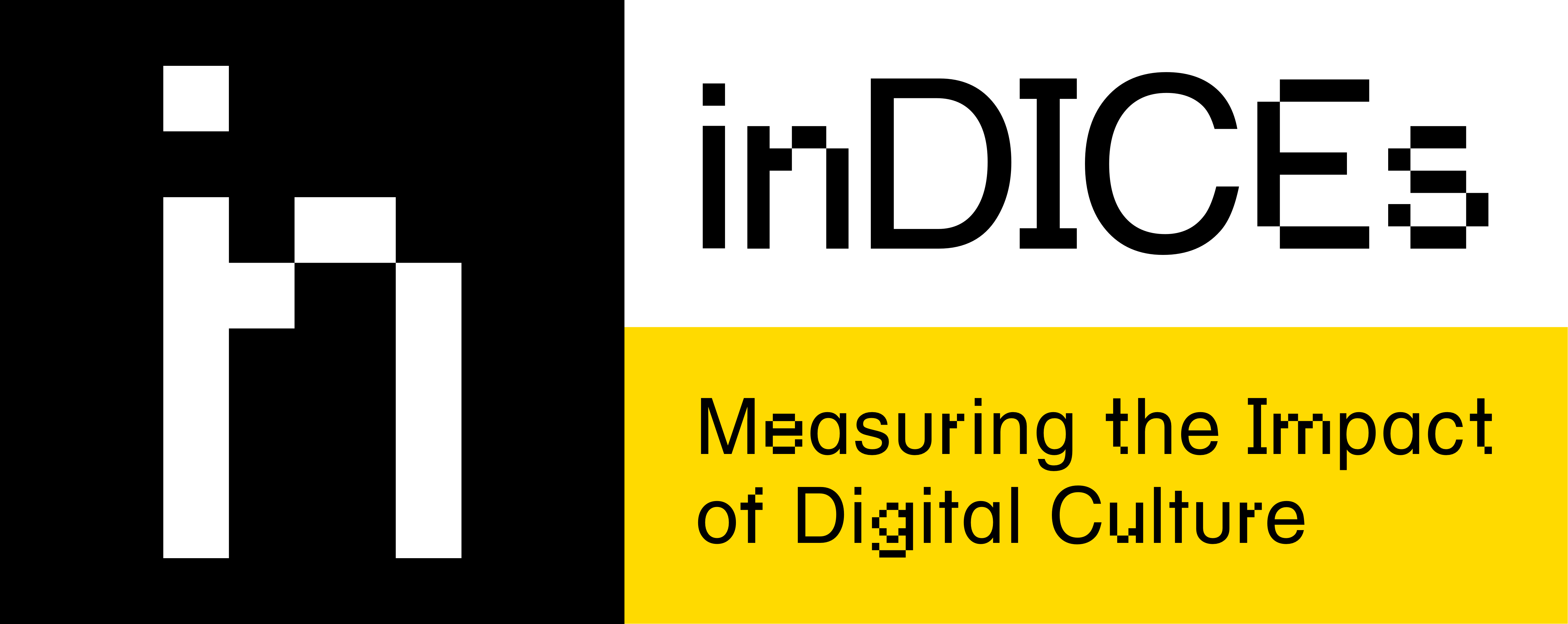The inDICEs project consortia organized a consultation workshop with the cultural heritage sector on 15 and 16 of September 2020. This workshop is the first one of the three consultation workshops envisaged within the project.
Our aim was (and still is) to meet representatives of the sector, institutions, researchers, users and all the inDICEs community to better understand the needs and concerns of the sector in relation to the digitization, online access, the use and the potential re-use of their collections. New technologies have undoubtedly changed the cultural content-sharing scene impacting cultural heritage institutions in a considerable manner. Further uses of their collections, new modes of access to the cultural content and even new business models have raised in the digital era. The relevance of these aspects have even been increased during this unprecedented time.
For these reasons, and in order to provide a legal and socioeconomic analysis of how these new ways of cultural content consumption are affecting the sector nowadays, we, from the inDICEs project, consider crucial to listen to the challenges that the cultural sector is facing.
The workshop was structured in two days’ meetings. After an introduction of the inDICEs project to the participants and our project partner Recreating Europe, the first day’s debates focused on the intellectual property (hereinafter ‘IP’) related challenges while the discussions of the second day revolved around the value chains and their impact on the cultural heritage sector.
Starting with a presentation of the results of our research on the IP European legal framework where the main aspects of the legal framework affecting the sector were shared, the participants could give their opinion on specific IP-related matters. The participants were then divided into four groups where all them had the opportunity to share their experiences and views around four topics related to IP: i) managing IP and best practices; ii) IP and your digitization strategy; iii) benefits of online access and iv) relationship with stakeholders and licensing.
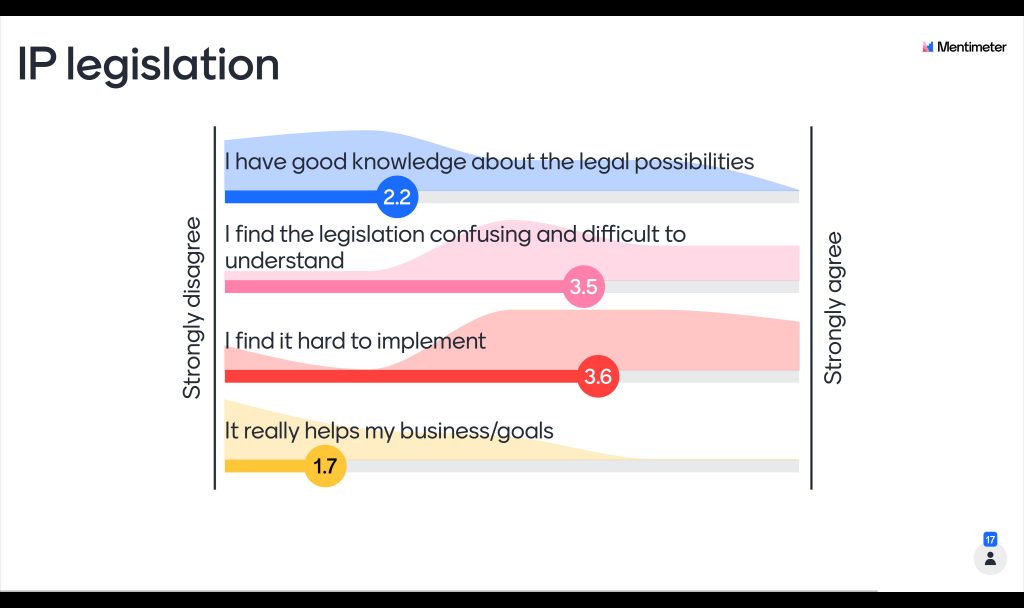
In general, we understand from the discussions that IP remains to be one of the main challenges that the cultural heritage sector needs to face when sharing, using and distributing content.
The lack of complete harmonization of IP, and mainly of copyright rules, in combination with the variety and complexity of such rules make difficult for cultural heritage professionals to ascertain what is and what is not allowed without infringing copyright. In addition, a high number of the cultural institutions lack staff with IP expertise, who would be skilled in IP management and licensing practices. This lack of internal staff in combination with cuts on the funding are also other important barriers hindering the activities of cultural institutions in the digital environment.
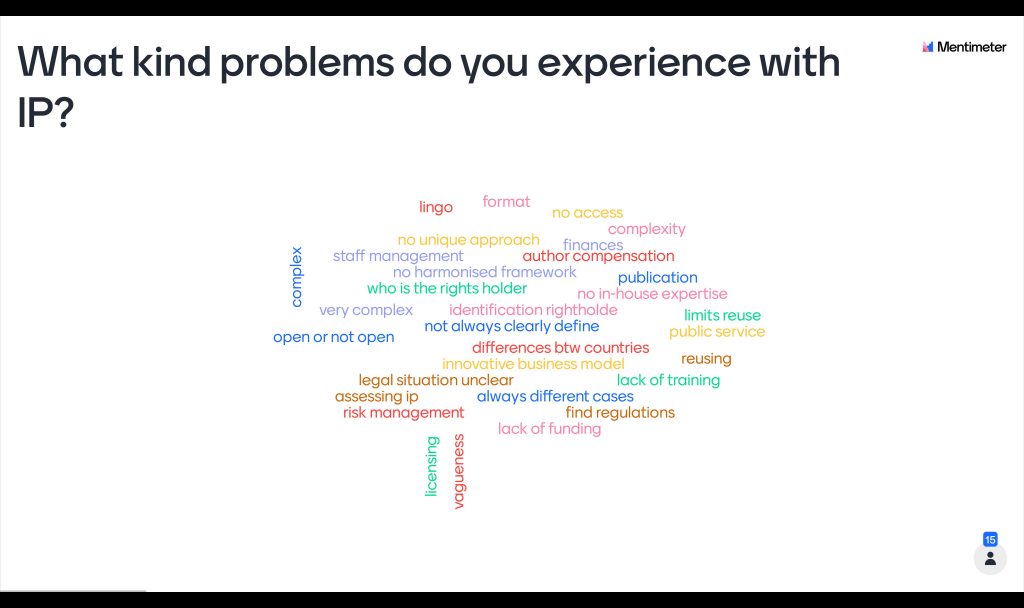
More specifically, it seems clear that copyright is the most important IPR with regards to cultural institutions and the digital transformation. Yet, it seems that some institutions do create a certain ‘brand’ of the institution and commercialize their products or designs. Concerning copyright, most of the participants, as cultural institutions, are not the content owners neither the copyright owners of the works in their collections. Hence, there is a need for engaging in licenses with third parties and/or rightsholders. CC licenses are, in principle, quite well-known among the institutions.
It is also been proved that the relationship with rightsholders is not an easy task for the institutions. Cultural institutions often find themselves between, on the one hand, the will of providing a good service to the public when offering their content and, on the other hand, the need of respecting third parties’ rights. In some occasions, they find that rightsholders are not always eager to respond to their requests.
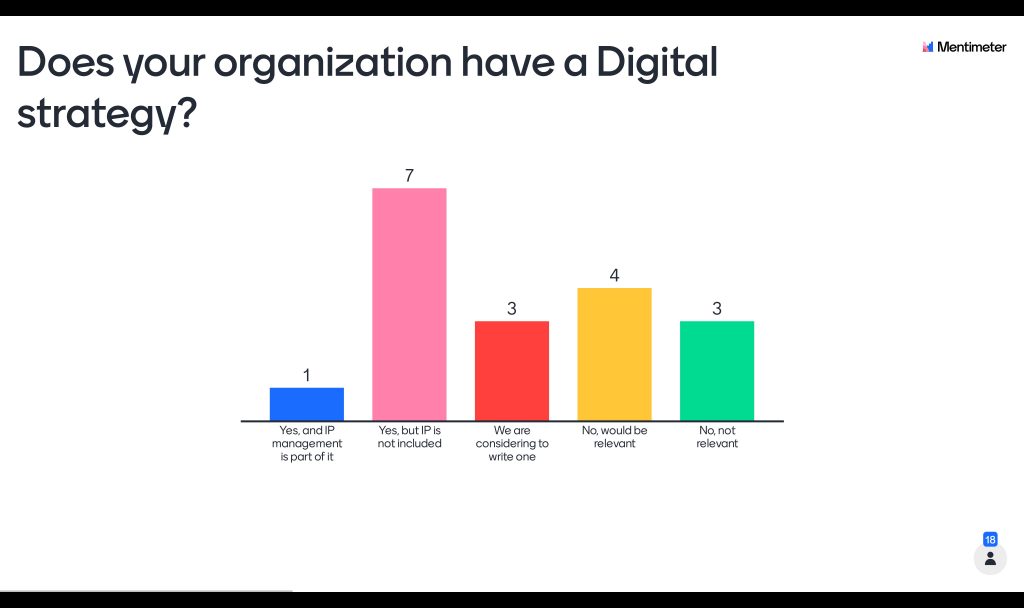
Furthermore, concerning the digitization strategy, we find important differences between public institutions and content owners and/or private institutions. While public institutions do not encounter major problems when digitizing their collections (as they have been digitizing their collections since the 90s), private content owners or private institutions do face certain issues. This is mainly due to the fact that public organizations tend to receive public funding, unlike private institutions or content owners, who, on the contrary, need to generate revenues to continue with their activities. Therefore, for the latter, IP management is certainly part of their digital strategy. On top of that, digitizing their collections undoubtedly increase their visibility in the market.
In this context, given that digitization is narrowly connected to the possibilities for CHIs to offer online access to their collections, similar differences are found between private or public institutions as digitization activities entail high costs for the institutions that need, in the case of the former, to be reverted. Some private organizations do base their business models on the licensing of their content and this is the reason why open access policies are not that easy to embrace for them. On the other hand, it also seems difficult for CHIs to get the permissions for opening up their collections online in relation to the content that is protected by copyright and owned by third parties. Most of the rightsholders do still fear the loss of control on the uses of their content when it is shared online through e.g. content aggregators.
Finally, as mentioned before, the need for online access to the CHIs collections seems to have increased with the COVID-19 situation. However, some institutions feel a high pressure in this regard as there are (even) more expectations on them to share their content online as quickly as possible. Yet, they are still facing the same legal restrictions on the one hand, and experiencing several cuts on their financial resources, on the other hand.
In the participants’ views, clearer models for IP management, and even a high-scale body at EU level that could support them by providing accurate and up-to-date information on IP management and best practices would be really welcomed.
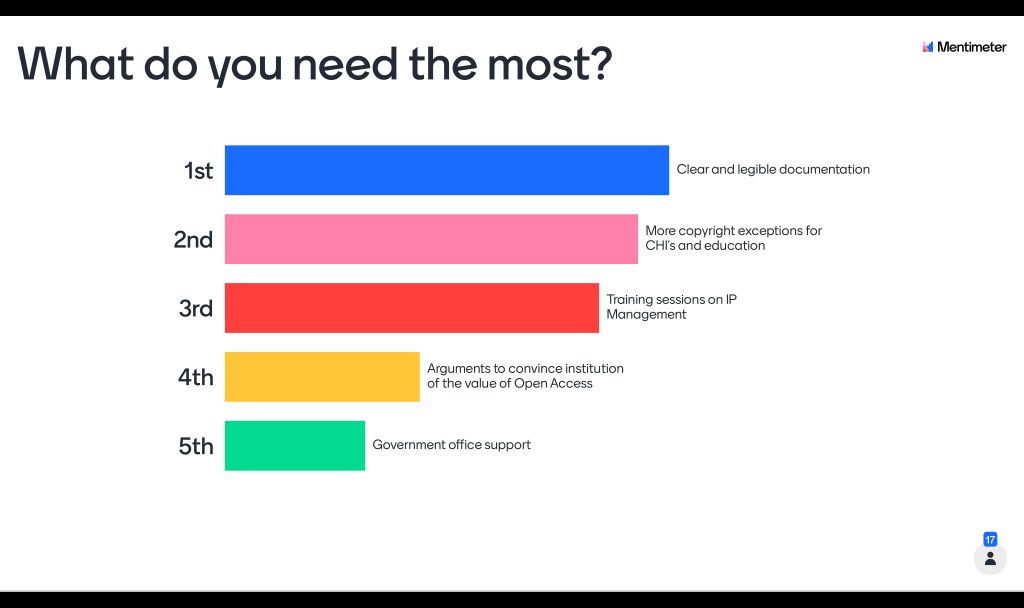
Finally, to continue our consultation process after these fruitful discussions, we encouraged all institutions and stakeholders to participate in the IP survey and to engage with the inDICEs community. From our side, we will continue working with the cultural sector in the following workshops and within our participatory platform.
This blog post was written by Sonsoles Pajares Rivas & Frederik Truyen, KU Leuven
